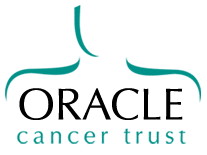Reducing the effects of radiation on swallowing
Full project name: methods of improving swallowing through development of novel advanced radiotherapy techniques
Tag: Kinder treatment | Past Project
Patients undergoing radiotherapy to the head and neck region frequently complain of long-term problems with swallowing after therapy. The causes of this are multi-faceted, but are largely related to radiation of the pharyngeal musculature (throat muscles) responsible fornatural swallowing. The clinical consequences of this radiotherapy complication can be mild with restriction of diet or modification of swallowing function or maybe severe particularly if the swallow is so badly affected that aspiration of food into the lungs is a risk. In this situation the patient may be very restricted in terms of swallow and have to be fed through a permanent gastrostomy (feeding) tube.
Recent advances in technical radiotherapy delivery have allowed for the reduction in the radiation dose to sections of the pharyngeal muscles such that swallowing problems may be reduced or avoided. This project tested these new techniques in a clinical trial to assess the size of the benefit which might be achieved.
Work was carried out under the supervision of world renowned radiotherapy expert Professor Chris Nutting is being carried out by Dr Imran Petkar at The Royal Marsden Hospital in Chelsea.
Compared to the standard radiotherapy technique, this new swallow sparing radiotherapy (SW-IMRT) meant that the dose delivered to the throat muscles was reduced and there was a 7% reduction in the risk of developing persistent swallowing difficulties after radiotherapy.
The definitive role of this technique is currently under evaluation in the DARS trial, which is a Cancer Research UK sponsored national phase 3 randomised controlled trial. Results from this study will determine whether SW-IMRT should be used as standard of care in routine practice. Read more about the trial in the paper published by the researchers here https://www.ncbi.nlm.nih.gov/pmc/articles/PMC5052945/
As well as researching new radiotherapy techniques, Dr Petkar also investigated the benefit of another new technique, swallow-sparing proton therapy (SW-IMPT) in reducing post swallowing toxicities. Positive results meant that Dr. Petkar drafted a proton proposal for a phase 3 national head and neck study in throat cancers, which is currently under consideration with Cancer Research UK.
This work has the promise of bringing real benefits to patients both now and in the future.
This project was generously funded by The Swire Group of Charities.

Help us beat cancer
Our life-saving work relies on the money you give us.
Donate now and together we can save more lives by beating cancer sooner.

Project type:
Fellowship
Project Leader:
Professor Chris Nutting
Researcher:
Dr Imran Petkar
Commencement date:
September 2015
Length of project:
2 years
Funding provided:
-
Funder:
Sir Adrian Swire Swallowing Fellowship
Location:
The Royal Marsden Hospital
Completed projects

